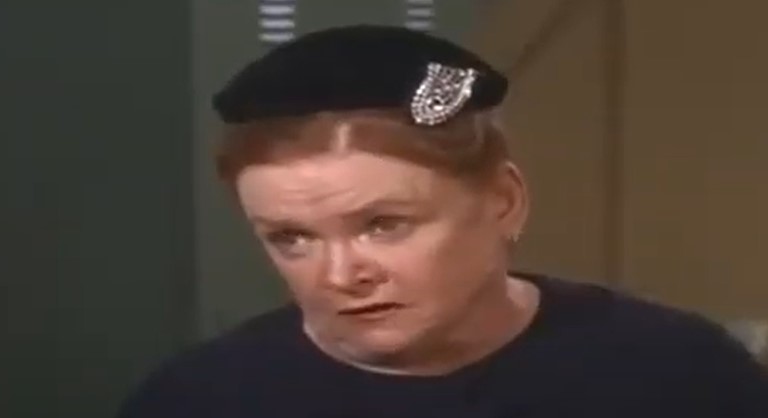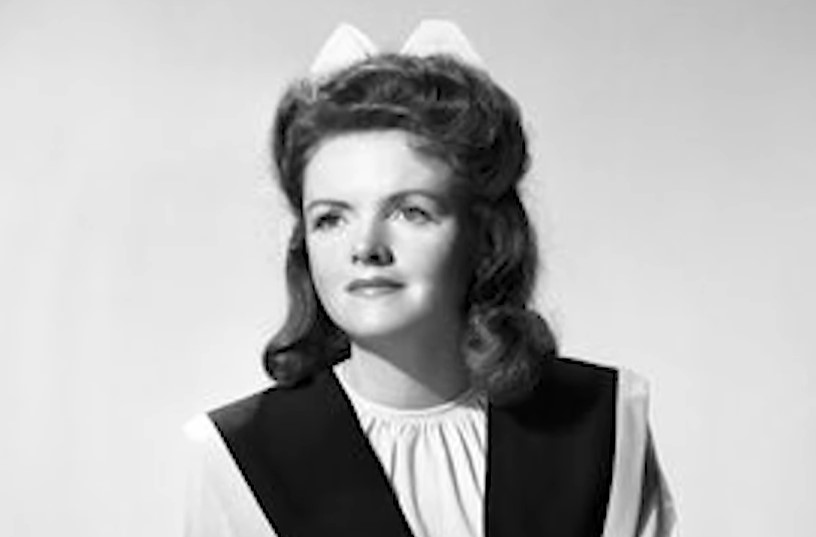Pert Kelton was an American actress who starred in several successful television shows and films during the 1950s and 1960s. However, her career came to an abrupt halt in the early 1970s, when she was blacklisted from Hollywood.
There is no concrete evidence to explain why Kelton was blacklisted. However, there are a few theories that have been circulating.
One theory is that Kelton was blacklisted because of her outspokenness about politics and social issues. Kelton was a vocal supporter of the civil rights movement, and she was also a critic of the Vietnam War. This outspokenness may have made her a target for those who disagreed with her views.
Another theory is that Kelton was blacklisted because of her alleged communist ties. In the early 1950s, there was a wave of anti-communism in Hollywood, and many people were blacklisted for their alleged communist sympathies. Kelton’s name appeared on a list of suspected communists, but there is no evidence that she was ever a member of the Communist Party.
Finally, it is also possible that Kelton was blacklisted simply because she was a woman. The 1970s were a time of great change in Hollywood, and many women were finding it difficult to get work. Kelton may have been a victim of this discrimination.
5 Reasons Why was Pert Kelton Blacklisted

There are a few reasons why Pert Kelton was blacklisted from Hollywood.
1. Listing in “Red Channels”
Published in 1950, “Red Channels” was a pamphlet that accused hundreds of individuals in the entertainment industry of communist sympathies or associations. Kelton and her husband, actor-director Ralph Bell, were among those listed, despite a lack of concrete evidence supporting the accusations.
2. Guilt by Association
Although the allegations against Kelton primarily targeted Bell’s suspected leftist leanings, the nature of the blacklist often employed guilt by association. Bell’s alleged ties to communist circles cast a shadow over Kelton, making her persona persona non grata in the eyes of cautious network executives.
3. Cold War Paranoia
The 1950s were a time of intense fear and suspicion surrounding communist infiltration in the US. This climate of anxiety made individuals like Kelton, with even tangential connections to perceived “subversive” elements, vulnerable to accusations and career repercussions.
4. Independent Spirit and Outspoken Views
Pert Kelton was known for her strong personality and willingness to speak her mind. Some speculate that her independent spirit and progressive views may have made her a target in a conservative industry, potentially seen as a threat to the established order.
5. Uncertainty and Speculation
The lack of concrete evidence surrounding the accusations against Kelton leaves the true reasons for her blacklisting open to speculation. This ambiguity contributes to the enduring mystery and the feeling of injustice attached to her story.
It’s important to remember that the Hollywood blacklist was a dark period in American history, characterized by unsubstantiated accusations, fear-mongering, and the silencing of dissent. While the specific reasons behind Pert Kelton’s blacklisting may remain unclear, her story serves as a poignant reminder of the chilling effects of McCarthyism and the importance of protecting artistic freedom.
Why Did Audrey Meadows Replace Pert Kelton?
Pert Kelton was an actress who was originally cast to play the role of Alice Kramden on the popular 1950s sitcom The Honeymooners. However, due to her previous political affiliations with the Communist Party USA, she was blacklisted from working in television and replaced by Audrey Meadows. Although Meadows wasn’t the first choice for the role, she ended up being perfect for it and went on to become one of America’s most beloved television actresses.
What is the Blacklist in History?
The blacklist was a period in Hollywood history when actors, writers, directors, and other entertainment industry professionals were blacklisted for their political beliefs. The blacklist began in the late 1940s and lasted for several decades. During this time, people who were blacklisted were denied work in Hollywood. They were often called “unemployables” or “graylisted,” and they were forced to find work outside of the industry.
There are a few reasons why people were blacklisted. Some were blacklisted because they were suspected of being communists or communist sympathizers. Others were blacklisted because they spoke out against the government or the war. Still others were blacklisted simply because they were friends or associates of people who were blacklisted.
The blacklist was a dark time in Hollywood history. It was a time when people were denied their livelihoods because of their political beliefs. The blacklist also had a chilling effect on free speech in Hollywood. People were afraid to speak out for fear of being blacklisted themselves.
The blacklist began in the late 1940s, after World War II. The United States was in the midst of the Cold War, and there was a great deal of fear and suspicion of communism. The House Un-American Activities Committee (HUAC) was a congressional committee that was tasked with investigating communist activity in the United States. HUAC held a series of hearings in the late 1940s, and many people were called to testify. Some people who testified admitted to being communists or communist sympathizers, but others refused to answer questions about their political beliefs. These people were often labeled as “unfriendly witnesses,” and they were blacklisted from Hollywood.
The blacklist ended in the early 1960s, after a number of high-profile cases. In 1957, the Supreme Court ruled in the case of Watkins v. United States that HUAC could not compel people to answer questions about their political beliefs. In 1960, the actor and director Elia Kazan testified before HUAC and named names. This led to a great deal of controversy, and many people criticized Kazan for his actions.
Conclusion
Pert Kelton was an actress who was blacklisted during the McCarthy era. She was accused of being a communist and her career was ruined.
You May Also Like:


